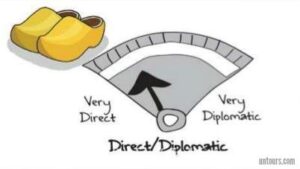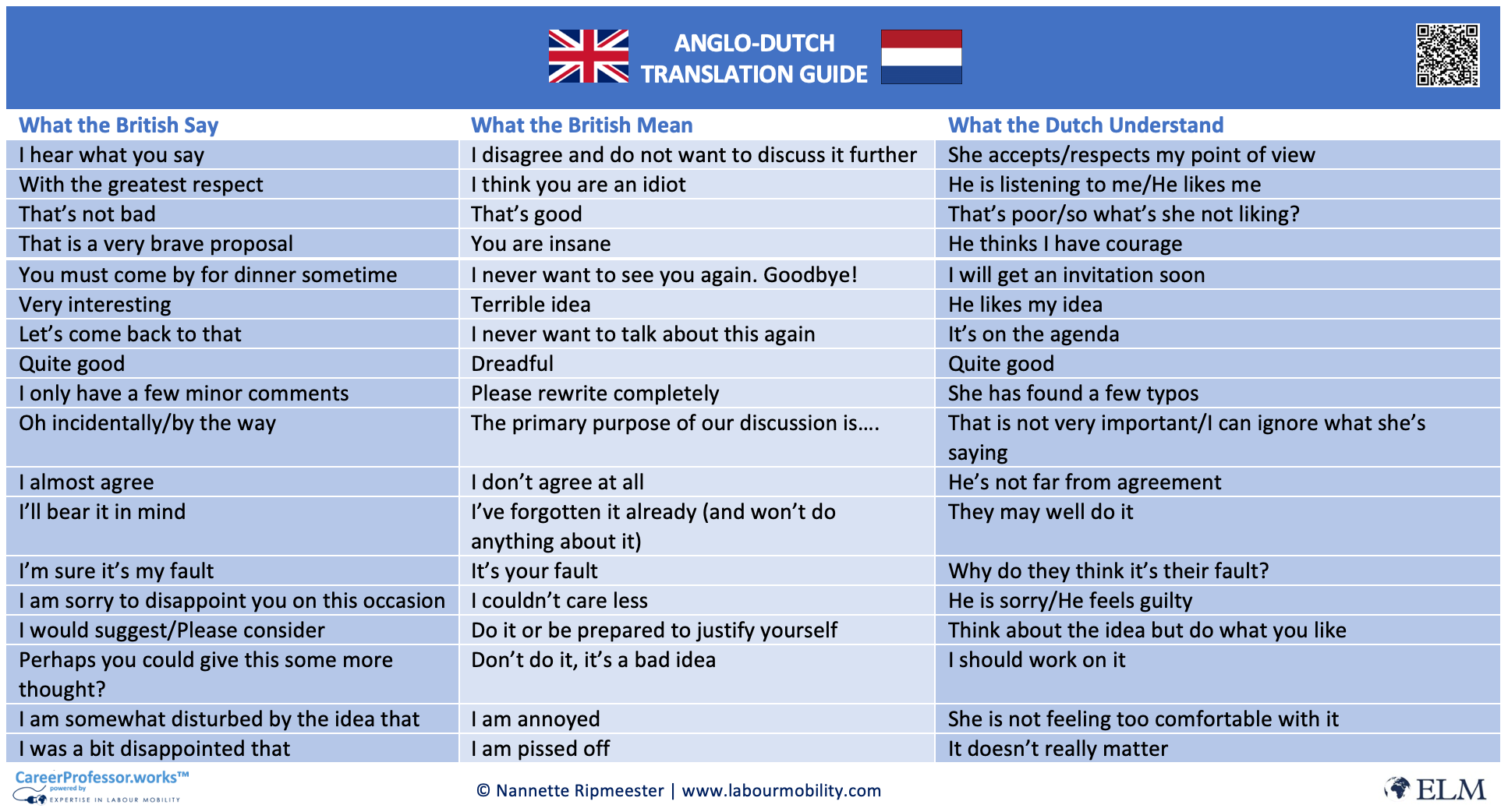
We all speak English, don’t we?
When you are attending an international conference in the Western world, you will most likely be speaking English – handy, because this will allow us all to communicate irrespective of the language you are speaking at home.
However, do we indeed all speak English?
When years ago, one of my British colleagues said to me “With all due respect…”, I – being Dutch – thought “oh those British are always so gentlemen like”. Little did I know…
It took a while before I fully understood the British concept of phrases such as “very interesting indeed”. I once tried to use the “very interesting” in an international meeting: my Dutch and German colleagues looked at me as if I had gone nuts – thinking the suggestion was not ‘interesting’ at all and the Australians were puzzled, the Canadians doubted my intentions and only the Brits got my underlying cynicism.  So, I now stick to the Dutch directness if I want to get my point across – often introduced by the comment “sorry I’m Dutch, so this may come across as a little direct…”.
So, I now stick to the Dutch directness if I want to get my point across – often introduced by the comment “sorry I’m Dutch, so this may come across as a little direct…”.
However, to be fair, I hardly ever use the English equivalents of what I would say in a meeting with just Dutchies around the table, simply because I want to overcome getting people shell shocked by what I would consider “honest feedback”.
Based on the differences in the use of language that I noticed years back, I drew up a little translation guide, which since then has featured in many publications: What the British Say, What the British mean and What the Dutch Understand.
At ELM we use this translation guide in expat trainings and student workshops. Irrespective of whether you are a British expat working in the Netherlands or a Dutch (or German for that matter!) student on an exchange abroad, we all speak English but often have no clue what the other actually means.
So to prepare yourself for the next international conference you will be attending: Have a look at the translation guide. And be prepared for downgraders when talking to the Brits. A downgrader is a deliberate understatement or a word that softens the criticism, such as kind of, sort of, a little, a bit, maybe, and slightly. So when your British counterpart tells you that you are not quite there yet, what they are trying to tell you is: “This is nowhere close to complete.”
P.S. Some advice for those of you who are Dutch or from a Nordic country: forget words such as absolutely, totally or strongly. It will make less direct cultures want to run away… screaming!
Translation Guide
Nannette Ripmeester is Director of Expertise in Labour Mobility specialising in customised solutions for international labour mobility. With over 20 years of experience in working for governments, companies and higher education institutions, Nannette holds double-sided knowledge on what makes people mobile and internationally employable.
Follow her and the ELM team on twitter: @labourmobility
Articles:
Separated by a Common Translation? How the Brits and the Dutch communicate. Bart Rottier, Nannette Ripmeester, Andrew Bush, Pediatric Pulmonology, December 2010.
How To Say “This Is Crap” In Different Cultures. Erin Meyer, Harvard Business Review, HBR Blog Network, February 25, 2014.
© Expertise in Labour Mobility B.V. All rights reserved.

